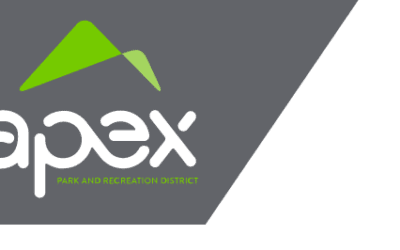By Kylie Parks, Arvada Chamber Director of Talent Pipeline Development
This year’s legislative session saw over 600 bills introduced at the Colorado state capitol. Through the Advocacy KAPS Council, the Jefferson County Business Lobby (JCBL), and consistent outreach to elected officials at all levels of government, the Arvada Chamber took a position on dozens of bills in the 2023 session that will impact Colorado businesses (read our 2023 Advocacy Scorecard here).
Jeff Weist from the Weist Capitol Group and JCBL shared the below list of 17 bills enacted in law that Colorado businesses should be aware of and in compliance with.
Employment Laws
HB23-1045 – Employee Leave For Colorado National Guard Service
Ensures employees enlisted in the National Guard or any other component of the military forces are entitled to a leave of absence for their time on duty without loss of pay or additional benefits (including salary, and position) when actively participating in training or active service up to the equivalent of three working weeks.
SB23-017 – Additional Uses Paid Sick Leave
Effective Date: August 7, 2023. Extends Allowances for employees to utilize accrued paid sick leave to incorporate medical needs, family emergencies, family support, grieving, and displacement from home due to weather. Colorado employers must also notify employees of their right to take paid leave under the Colorado Healthy Families and Workplaces Act (HFWA), including the reasons for which employees can take such leave. For that reason, Colorado employers should consider updating their sick leave policies to set forth the new grounds for which employees may take leave and to update their sick leave poster on or before the effective date of the new law.
SB23-046 – Average Weekly Wage Paid Leave Benefits
Previous law specifies that a covered individual’s weekly paid family and medical leave benefit is determined based on the individual’s average weekly wage earned during the base period from which the covered individual is taking paid family and medical leave, which excludes from the calculation recent wages from previous jobs. The bill eliminates the limit on calculating the benefit based on the average weekly wage earned only from the job from which the individual is taking paid family and medical leave.
SB23-058 – Job Application Fairness Act
Effective Date: July 1, 2024. Employers may not ask for age, date of birth, or college attendance dates. If necessary the employer can request transcript information or copies of certifications by third parties as long as they also request this information to be removed. Employers can verify required age requirements as it pertains to occupational safety or requirements.
Two key takeaways from the Job Application Fairness Act:
- Employers may need to remove fields in their application forms and platforms that ask for an applicant’s age, date of birth, and dates of attendance or graduation from school.
- Employers may need to train interviewers to avoid age-related questions during applicant screenings and interviews.
SB23-105 – Ensure Equal Pay For Equal Work
Effective Date: January 1, 2024. This bill aims to address wage disparities by promoting equal pay for equal work. It prohibits wage discrimination based on sex, provides remedies for violations, and requires transparency in pay practices. Employers in Colorado are required to notify all team members of new position openings including pay, and also must inform team members of the candidate selected within 30 days of hire to include the person’s name, title, and previous position. Employers must also educate team members on how they can apply for the position in the future.
SB23-172 – Protecting Opportunities And Workers’ Rights (POWR) Act
Effective Date: August 7, 2023. This law redefines the standard for harassment claims, sets stringent requirements on nondisclosure provisions, adds marital status as a protected category under Colorado law, and includes new requirements on the storage of personnel records. Colorado employers should carefully review the requirements of this law as it may require modifications to preexisting policies, procedures, and agreements.
Given the more stringent standards set forth in the new law and its imminent effective date, employers should begin preparing now to ensure they are in full compliance. To preserve their affirmative defense to harassment claims, employers should ensure they have established and implemented a program to prevent and deter harassment, and to investigate any harassment claims that arise in the future.6 Employers should also consider revising agreements with nondisclosure provisions to comply with the specific rules laid out in the new law. Further, companies will need to implement new processes to retain personnel files and employment records for five years in compliance with the law’s record-keeping rules. (source)
Benefits
HB23-1006 – Employer Notice Of Income Tax Credits
Effective Date: August 8, 2023. This bill requires an employer to provide written notice of the availability of federal and state earned income tax credits and federal and state child tax credits at least once annually. Employers may send the written notice to employees electronically, including via email or text message. The written notice must be in English and any other language the employer uses to communicate with employees and must include any additional content the state’s Department of Revenue may prescribe through its rulemaking processes.
HB23-1189 – Employer Assistance For Home Purchase Tax Credit
This bill introduces a tax credit program to provide assistance to employees for home Purchases. Businesses can receive a tax deduction for supporting employees with down payments and closing costs. Read more about this bill in a spotlight on Arvada Economic Development Association.
HB23-1201 – Prescription Drug Benefits Contract Term Requirements
Previously, Pharmacy Benefit Managers could charge employers one price, but reimburse pharmacies less and keep the difference, a practice known as price spreading. This bill makes it an unfair business practice for PBMs to charge employers more for a drug than what they pay pharmacies for the same drug and increase transparency for employers into PBM and carrier behavior that impacts their costs.
Pharmacy benefits issued on or after January 1, 2025 require that prescriptions to a covered person or company must be equal to or less than the amount paid by the carrier. This should be clearly stated in the contract with the provider.
Workers Compensation
HB23-1196 – Remedies At Law For Violating Colorado Youth Act
This bill strengthens remedies for violations of the Colorado Youth Employment Opportunity Act. This clarifies that Workers Compensation is not an exclusive remedy for violations of the “Colorado Youth Employment Opportunity Act of 1971.” It enhances protections for young workers and imposes penalties for non-compliance.
HB23-1076 – Workers’ Compensation
Effective Date: August 7, 2023. Increases limit for mental impairment leave from 12 to 36 weeks of benefits and requires employers to furnish medical aid within reason when injuries result in various loss including (but not limited to) hearing, vision, teeth.
Construction
SB23-292 – Labor Requirements For Energy Sector Construction
Effective Date: January 1, 2024. Colorado is undergoing a historic transformation to address threats posed by climate change. This bill establishes the need to create a sustainable labor, resources, and project plan to meet the demands. These resources will be paid by residents through future taxes and utility bills.
Workforce Development (Non Regulatory)
HB23-1246 – Support In-demand Career Workforce
This bill aims to support the development of an in-demand career workforce in Colorado. It establishes programs and initiatives to provide training and educational opportunities. In demand industries include: early childhood education, education, law enforcement, fire and forestry, construction, and nursing.
SB23-065 – Career Development Success Program
This bill establishes the Career Development Success Program to enhance career pathways for students. It provides opportunities for internships, apprenticeships, and work-based learning.
SB23-205 – Universal High School Scholarship Program
This bill creates the Universal High School Scholarship Program, which aims to provide financial aid to eligible students pursuing higher education.
ADA
HB23-1032 – Remedies Persons With Disabilities
Effective Date, May 25, 2023. This bill prohibits businesses from discriminating on the basis of disability in places of public accommodation. Places of public accommodation include businesses that offer sales or services to the public, excluding places principally used for religious purposes such as synagogues, mosques, or churches. The most common types of disability-related public accommodation lawsuits can occur, for example, a) when someone with a physical impairment encounters difficulty accessing a building or certain areas within a building, b) when a business cannot communicate effectively with someone with a vision, hearing, or speech disability, or c) when website content is difficult to access for someone with a visual, hearing, or physical impairment.
HB23-1296 – Create Task Force Study Rights Persons Disabilities
This bill establishes a task force to study the rights of individuals with disabilities. The study aims to identify any barriers, gaps, or deficiencies in existing laws, regulations, policies, and practices that affect the rights and inclusion of individuals with disabilities.
———–
B.O.L.D. 2026 is a five-year regional economic strength and resiliency initiative of the Arvada Chamber of Commerce. The Chamber developed BOLD 2026 in consultation with private and public sector leaders and partners in Arvada, Jefferson / Adams Counties, Metro Denver and the state of Colorado. One goal of B.O.L.D. 2026 is to grow our talent to meet the needs of employers and job seekers. Learn more about our talent challenges and work here.



0 Comments